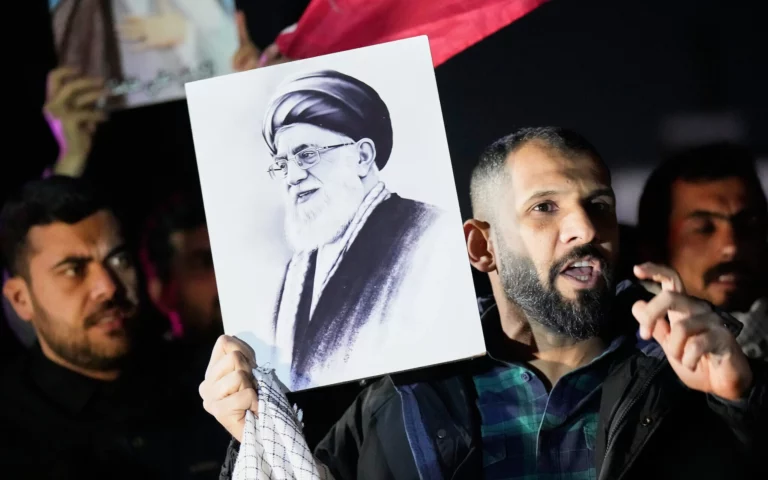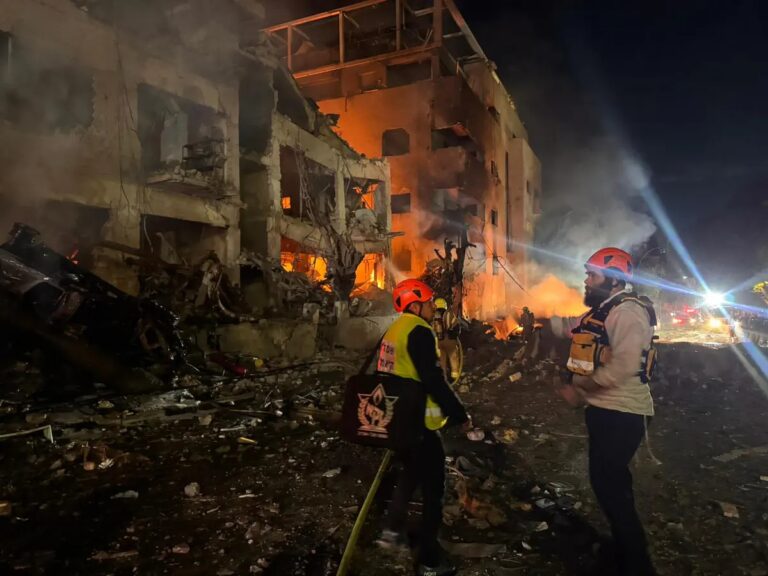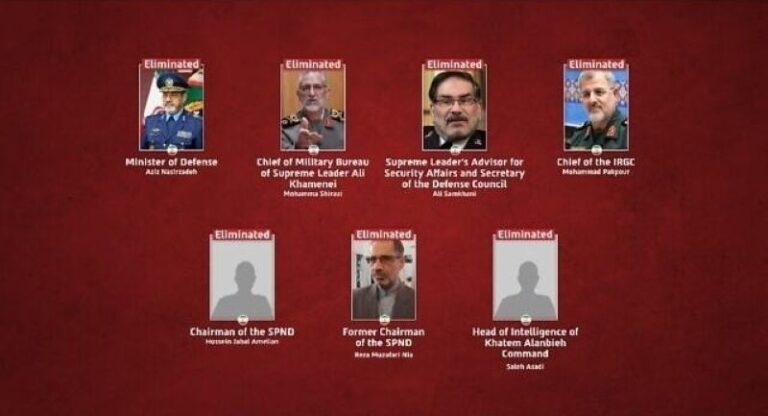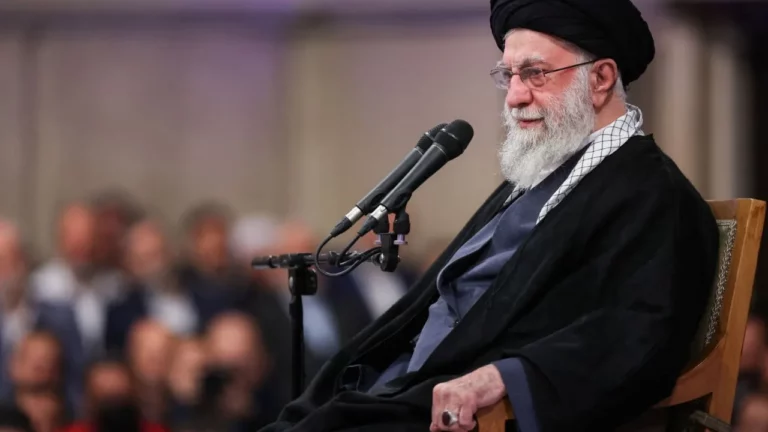When a rosh yeshiva speaks about the dangers of drinking culture, the entire community pays attention. But sitting across the therapy couch from your sons each week, I need to say something that hurts: the crisis is not Toameha. The crisis is us.
We can outlaw the Kiddush Club. We can close down every Erev Shabbos gathering, seal every bottle, and issue kol korehs until our printers run out of ink. And yes, people may drink a little less discreetly. But nothing real will change because the schnapps itself was never the source of the problem. The bottle is only the Band-Aid. The wound is deeper, and it was inflicted by the very society that now screams for solutions.
We built a culture obsessed with appearances. We engineered a lifestyle defined by competition, visual perfection, and social pressure. We created a world where simchas are not celebrations, but staged productions—where “mazel tov” quietly translates into debt, anxiety, and humiliation behind closed doors. The flowers wilt in the hall, but the bills stay for years.
In too many homes, a chasuna or bar mitzvah marks the start of financial suffocation. Parents take on loans they cannot repay. Mothers watch the bills pile up as collectors circle. Fathers internalize the stress and feel personally responsible for the disaster. No one sees it, because the pictures were gorgeous. The videos were dazzling. The guests were impressed. Meanwhile, sholom bayis erodes under the weight of a lifestyle that nobody can afford and everybody is expected to maintain.
Then the parents work more hours to dig themselves out. They spend less time with their children. Tension fills the home where joy belongs. And children—who always feel what adults try hardest to hide—internalize the fear, the strain, and the loneliness. They don’t understand debt, but they understand pain. They don’t know what a loan shark is, but they know when Tatty is scared and Mommy is tense. They feel neglected not because their parents don’t care, but because survival leaves no space for hugs.
So teenagers do what the adults do: they escape. Only they don’t need Toameha to find their coping mechanism. They search for validation in the only place they can find it—other kids who are just as hurt, just as neglected, just as desperate for acceptance. They form friendships not out of rebellion, but out of mutual, silent suffering. And together, they drown out the noise. First it’s alcohol. Then it’s stronger stuff… And yes, this is happening. Not in theory. In your neighborhoods. In your schools. In your shuls.
When we ignore the emotional needs of our young men, when we overwork their parents, when we replace connection with image, we should not be shocked when the next generation seeks comfort in liquids and powders that promise relief. It is not curiosity that drives them. It is pain.
And there is an even darker truth. In a community that prides itself on Torah chinuch, the average child has become invisible. A boy who isn’t a genius, who isn’t polished, who doesn’t make the yeshiva look prestigious enough, is quietly pushed aside. If he struggles academically, instead of being supported, he is labeled. If he doesn’t fit the mold, he is unwanted. If his existence threatens the “brand” of the school, he is denied a place. That rejection doesn’t just bruise a child—it cracks him. It tells him exactly where he stands in our value system.
So before you declare war on schnapps, ask yourself this: How many of these boys are numbing themselves because we never bothered to make room for them? How many parents are drowning not because they don’t care, but because our expectations choke them? How many families are slowly collapsing under the pressure to look perfect for people whose opinions mean nothing in the long run?
We don’t have an alcohol crisis. We have a crisis of values, priorities, forgotten children and exhausted parents and a community that has become more afraid of embarrassment than of suffering.
As long as we continue worshipping image over honesty, prestige over compassion, lavishness over sanity, and “standards” over the dignity of every single child, nothing will change. We can ban Toameha today and our sons will still be searching for ways to silence the ache tomorrow.
If we want to stop the drinking, the drugs, the emotional collapse of our youth, we must stop numbing ourselves first. We must build a community that supports families before they break, that celebrates modest simchas without shame, that treats average children with the same excitement we reserve for prodigies, and that measures success by the health of our homes—not the beauty of our tablecloths.
Until then, banning schnapps is nothing more than a symbolic gesture, a quick fix for our conscience, and a distraction from the truth.
And the truth is this: we are not losing our children to alcohol. We are losing them to the pain that we refuse to confront.
Signed,
A Therapist
The views expressed in this letter are those of the author and do not necessarily represent those of YWN. Have an opinion you would like to share? Send it to us for review.












39 Responses
Beautiful article with powerful, true points. But the same is true about Rabbi Bender’s article as well. It’s a real shame that the headline was written in a way that seems to knock the previous piece. Because of that, many people won’t take your message as seriously as it deserves.
I’m assuming the therapist did not choose that derogatory headline. Whoever did might want to consider speaking to a therapist themselves—or at least focus on being productive and solution-oriented instead of chasing clicks with divisive titles.
Beautiful article with important truths — and Rabbi Bender’s Video contains equally valid, urgent points.
What’s unfortunate is that the headline chosen for this piece made it sound like a rebuttal or an attack on Rabbi Bender’s message. Because of that, many readers will immediately go on the defensive and won’t give this article the seriousness it deserves.
I’m fairly certain the therapist didn’t choose that headline. But whoever did should reconsider the approach. Sensational, divisive titles may get clicks, but they undermine the goal of real improvement in our community. These are two caring voices addressing the same crisis from different angles — not opponents in a debate.
Both messages are needed. Both are true. And neither should be dismissed because of a headline written for shock value instead of substance.
Wow. So well said.
Who am I to say so? I am someone who has been there. And there. And the other place too. I have been on too many couches to count, spoken to too many Roshei Yeshivas to bother mentioning, and worked with countless Mashgichim and Rebbeim.
I have spent hundreds of hours reading psychology books. I have investigated every lead, to places few people even know exist.
And.
I am known to the public as a Talmud Chacham muflag. A matzliach in every sense of the word.
And still I say- this essay says what needs to be said, better than I could have ever said it.
PS. I am very comfortable financially, bli ayin hara. But you would never know seeing my house (deliberately smaller than most people’s) or my cars (very simple and used till they break down) or my simchas (most people don’t get invited).
And we are happy, thank you Hashem.
Get with the program people.
It’s so important to spend on simchas what we can actually afford. This is really a big part of the ‘standards’ problem. IMHO we don’t need takanos. Those who can afford should celebrate in luxury and those who can’t should make smaller events. You don’t need to make a bigger party just bc your friend did. Be happy with what you have, do what you can, and then you won’t have these issues of tension and stress due to debt.
Well said . . .
Terribly factual . . .
Hitting the nail on the head . . .
Painfully true . . .
השם ירחם
Smoking is INFINITELY worse than alcohol, so a small dose of נחמה that I haven’t read about smoking in these Toameho fiascoes
Got gezoget
I’m not here to judge your message, but your delivery is flawed. When a Rosh Yeshiva voices his opinion, it is not your place to voice yours. If you have a problem with what was said, then send a email to rabbi Bender. His email address is not hard to come by. We all are installed to our opinions, but must be careful voicing them.
Oookay then. Two things can be true at once. The problems mentioned are certainly real, but so is what Rabbi Bender spoke about. He wasn’t speaking about alcoholism specifically he was speaking about it in the context of the new “Toameha” phenomenon.
Side note. These coffee room people are always decrying the issues with our society but written from the outside like it’s everyone else doing horrible things but not me, nooo im perfect. Gimme a break enuf with the problems maybe a solution would help. We all know people are throwing away money they don’t have on simchos and going in to debt. What do you propose we do to change that?
My Goodness.
Everybody has different theories as to why there’s problems, but I don’t think it’s a good place for one to make themselves look like they’re getting up and contradicting a respected rosh yeshiva and Community figure. Too many people are doing things like that these days especially when it comes to the rabbis in Israel that forbid drafting, everyone has an opinion but you don’t have to be the one who gets up and spits at the rabbis. The price is very high to pay for trampling on a rabbi’s honor and unintentionally still has repercussions
I’m sorry but this was obviously AI so please take with a grain of salt. Also very rich for an unnamed anonymous self-professed therapist (no way to actually verify that) to come out like that against a respectable Rosh Yeshiva.
This article did not have to contradict a Rosh Yeshiva. You could have presented the issue on its own. The reality is that Toameha is a problem and also materialism is a problem. Why can’t it be both? Yes, many teens resort to problematic behavior due to pain, but the pain comes from many sources. There is abuse, for one. Fixing the materialisim problem will not eliminate pain-numbing behavior at all.
sounds like a rant of a overworked therapist (sounds like you might need a drink) your entire article had zero percent to do with what rabbi bender said, I’m not sure where you at but in my town its the wealthy succesfull people making toameha getting drunk not JUST the rat race groups aside from the fact that no one said anything about all our systems problems really cute rant maybe next time try to plop it into the right context and not mix apples and oranges
Well said. However, you missed an important point. Certainly, emotional need needs to be addressed, but the bigger issue here is the deprivation of ruchnius in kids lives. Everything is fake, materialistic and being influenced by social media that parents are immersed in. There is no real Yiddishkeit and connection to Hashem. There’s real trampling of halachos, especially tznius, and the lifestyle is all fake. Besides for saying “thank you Hashem”, with visuals of dumb video clips accompanying the words of “thank you Hashem”, there’s nothing real these parents are giving over to their kids.
Whatever happened to being mekabel the emes, when someone says it. This therapist is likely speaking from the young adults sharing their deep pain with him. There is no contradiction between what Rabbi Bender said and what the therapist said. The Rav was speaking about the problem of Toameha. The therapist was explaining how we got there. They can both be correct…
terrible headlines.
and sounds like AI to me
no normal therapist would be so out right and go against a Rosh Yeshiva like that.
Sorry try again wanna be therapist. get a real job.
And I fail to understand why time and again YWN as the voice of the “Yeshiva World” fails to properly pass judgement and posts articles that denigrate our daas torah
AND I don’t understand why YWN, as the supposed voice of the ‘Yeshiva World,’ keeps posting letters and articles that undermine and disrespect daas Torah. This is not what a Torah-true platform should be promoting.
Absolutely on point and beautifully written. Will be sharing this with everyone I know. We HAVE to bring down the standards life is just too expensive. Majority of people I know need tzedakah these days for events. Insane. Even people who are living decent standards.
One has nothing to do with the other. Alcohol is an issue and there are other issues. The rosh yeshiva felt that normalization of alcohol needs to be called out for the benefit of the average person being affected or being peer pressured into it. Of course there will be yechidim who are internally driven to it.
As far as your other points go, there are plenty of segments in klal yisroel where there’s no pressure to make lavish simchos, etc. And there are many accepting yeshivos today that are not elitist. At some point people are responsible for their own decisons. Don’t blame rosh yeshivas and klal yisroel for people’s unwise choices that drive them into debt and other problems.
caring613: It is not nice what you said. The author speaks the truth. I do not blame you. Yes, the truth hurts. There is zero proof that the author was trying to contradict the Rosh Yeshiva. I am sure that Rav Bender would also thank the author. Solution: YWN ran an article a few years ago about R Don Segal’s trip and speech in Lakewood: Ban the sheitels! We need a Jewish mother who builds the home around spirituality and not around the appearances. She is THE ROLE MODLE for these drinking and smoking kids. I hope more Gedolim in America would start talking about this. Gedolim are waiting for articles like this! Yesher Kochachem!
Once the Gedolim will get the sense that people will start listening, they will start talking about it. To YWN: You are doing a Mitzvah. You are allowing the Gedolim and leaders see that people are yarning to hear more from them. Let’s tell our woman that we do not to worship the appearance of the ladies in Hollywood. With our Yiddishe sechel, we then magnify that appearance by a 100. What an Avlah Gedola! Yosef Hazadik got in trouble by paying attention to his look ( the midrash ). Hashem then tested him and things became difficult for him. We are not Yosef Hasadik, to even be faced with these tests, never mind passing them!
This anonymous therapist has to get off his high horse and have a little respect for the esteemed Rosh Yeshiva, Rav Yaakov Bender Shlita, who is one of America’s greatest mechanchim.
Rabbi Bender is a giant in Torah, and a giant in advising and leading the tzibbur for decades. For this anonymous therapist to get up there and rudely contradict the Rosh Yeshiva is extremely disrespectful and quiet ignorant as well.
“We have a crisis of values, priorities, forgotten children” I ask you how did we get there? The author answers that very nicely! “We built a culture obsessed with appearances.” Notice that this artificially built frum culture is very very different than the religious values/priorities developed through intense Torah learning done with Ahava and Yiraa ( as opposed to arrogance created by Pilpul). The author does a very good job differentiating these two! A grosse Yishkoach! The young children surrounded by this artificial culture can not distinguish the empty frumkeit from a true religion.
This was way off base. That is not to say that author is incorrect in their sentiment but they should have considered what exactly they were trying to accomplish before writing this piece and quite frankly, so should have this publication.
Harping on our communities well known deficiencies achieves very little. While the points made were factual and certainly need to be addressed, bringing them up in a piece that is seemingly a rebuttal to Rabbi Benders stance against a harmful practice is flat out counter productive.
If even one person is positively influenced by his message it is a positive. Why write something critical especially if it isn’t proposing solutions? Were all the underlying reasons of why this is happening addressed? No, but let’s be honest, the people taking part in these gatherings are giving themselves permission to do so. I believe that he did what our rabbonim and leaders are supposed to do – tell people they need to do better even if it is hard.
What also struck me was even mentioning how children, when they don’t fit the mold, are pushed aside in our system, in the same context with Rabbi Bender isn’t just tone deaf it’s disingenuous. How DARE you when it is well known that Rabbi Bender almost singlehandedly revolutionized the concept of making room for every child. His mosad is well known for integrating children from all walks with serious challenges- from broken homes to physical disabilities, into standard classrooms. He literally leads the charge when it comes to inclusive chinuch.
Lastly, as many commenters have already noted here, publicly opposing an opinion of Das Torah rarely yields positive results, and the intentions behind such opposition should be examined. While the points raised in the article are valid, this was neither the right time nor the appropriate place to air them.
A publication has a responsibility to assess the ramifications of what is distributed. Not only should this article not have been shared, it should be be taken down.
I agree with those who made the points that a) the tone of the article was disrespectful to an Adam Gadol, and b) there is no contradiction between these two articles.
I would add that it is entirely possible that a boy who is not suffering and is not looking to escape may very well develop an addicition to alchohol by attending a Toameha with his friends. (This, of course, is a point that is built on points a and b.)
Why does everyone behave as this is a complicated puzzle?
The solution is simple.
YOU make a simple bar mitzvah. YOU make a simple wedding etc etc.
I plan to do so, and will ignore my rov’s advice to a fellow mispallel that he had to make an elegant bar mitzvah for his son if all his friends were having similar bar mitzvahs
I just reviewed the article on copyleaks and it showed up as 100% AI content
Over the years I was zoicheh beH to make various life cycle simchos.
Having been raised to live within our middle class means, we tried to make our simchos nice, while keeping an eye on our budgets. BH we seem to have been successful because we always got feedback, that people enjoyed coming to our simchos which were not over the top but warm and lebedig.
Our guests felt wanted, because we tried to speak a few personal words to every guest, and let people go home early by not shlepping.
I’m not sure how things are nowadays – the oilem is bigger. (I was a classmate of Harav Bender)
I am still convinced, that people can make simchadikke simchos without breaking the bank.
If all of the writers complaints about problems in Klal Yisroel are true… why doesn’t everyone move to Cleveland OH or other calmer out of town Torah communities? The simchas here in Cleveland are for the most part, truly modest and no one really cares about much here except learning Torah and raising good families. Most people here make chasunas in Lakewood in very affordable takana halls or if done locally its rarely over the top and usually quite modest and beautiful. What you describe sounds like a different world than what our children see here Boruch Hashem. No place is perfect but if “in town” is having these problems then perhaps it’s time to come ‘out of town” and focus on the truly important things in life.
It is a shame that the blame is placed on the outside “stress factors” i do not believe that the “standards” are the trigger. The problem of drinking and drugs are unfortunately found even in youngsters who don’t have all the stress factors this therapist espouses. The problem is wealth, free time and wanting to be part of the crowd of people who don’t want to maintain a relationship with Hashem, their children and their spouses. It is very easy to blame “STRESS”. That is only a scapegoat. It is incorporation of poor judgment and values that allows this type of action to proliferate. Join activities with your children. If your neighborhood does not have sport leagues then be the one to start it. There are plenty of chesed programs and activities that can supplement the sitting around and drinking at a Toameha.
AI powered and not a therapist but
It comes from someones personal pain of making a simcha too big, being stressed, not being present in his home, and watching his family not turn out as he wanted.
Or the child of such a home.
I feel you, I am here for you, and YWN please share my email address with this writer. I want to be here for a fellow yid, even if all I can give is a listening ear. No I am not a therapist and I wont charge you a penny, but I promise you’ll feel better after we speak
Looking forward!
@ahava: just curious, are you married? does your wife wear a sheitel?? Right. I thought so.
The reactions to the therapist’s article fell broadly into a few predictable categories. Many commenters agreed with the substance of the critique — that the pressures of contemporary Orthodox life, the inflated expectations for simchas, the financial strain, the emotional neglect of children, and the narrow academic expectations in yeshivas all contribute to a difficult environment for families. Yet even among those who agreed, a number expressed discomfort with the tone of the piece, especially the perception that it contradicted or diminished the authority of Rabbi Bender. For these commenters, the issue was not whether the therapist identified real problems, but whether such criticism should appear in a public forum or appear to counter a Rosh Yeshiva’s message.
Another substantial set of commenters leaned heavily on kavod haTorah concerns. They argued that publicly critiquing leadership is inappropriate regardless of the accuracy of the claims. To them, form mattered more than content; the mere juxtaposition of the article with Rabbi Bender’s warning felt disrespectful, even if unintentionally. Alongside this, several readers dismissed the article as “AI-generated,” implying that it lacked authenticity or that a “real therapist” would not express such views — a rhetorical move to disqualify uncomfortable ideas without engaging them.
Others tried to reconcile both sides, insisting that problematic simcha culture and problematic drinking culture can coexist, and that the therapist and Rabbi Bender are addressing different pieces of the same puzzle. A parallel thread argued that the therapist had diagnosed only symptoms, whereas the true cause lay in declining ruchnius, overexposure to social media, or a weakened sense of Torah identity. Some pushed back by shifting responsibility from the community to individuals, contending that plenty of communities function well and that blaming the “system” has become too easy. All of this produced a predictable cross-section of communal anxieties: fear of criticizing authority, fear of systemic introspection, defensiveness over communal image, and deep ambivalence about the rapid growth and complexity of Orthodox life.
But the truth is that almost everyone in the discussion — the therapist, the defenders, the critics, and the reconciliers — is still circling around symptoms. The core problem facing our community is not the drinking, not the simcha expectations, not the mental-health struggles, and not even the elitism of our schools. These are all downstream effects of three deeper failures: values, majesty, and productivity.
The first failure is values — not in the sense of theology, but in the plain question of: What do we stand for? Much of contemporary frum culture has drifted into performative piety, status maintenance, and social reputationalism. Too often, instead of cultivating inner integrity, we cultivate optics. Instead of a community defined by responsibility, dignity, and moral clarity, we have a community increasingly animated by imitation, pressure, comparison, and fear of embarrassment. When the community no longer articulates a clear hierarchy of values rooted in purpose rather than display, the vacuum fills with material excess, image-obsession, and social conformity. Children raised within such an environment understand instinctively that the “rules” are external, not internal — and they respond accordingly.
The second failure is majesty — our loss of self-conception as a people meant to behave like a Mamleches Kohanim v’Goy Kadosh, a community that embodies dignity, restraint, compassion, and responsibility. We once aspired to be a Light to the Nations through our conduct. Now, too often, our public presentation is frantic, loud, anxious, and insecure. We imitate the worst tendencies of the surrounding culture rather than modeling higher ones. When a community stops seeing itself as a bearer of majesty, its members lose the aspiration to rise above the noise. Young people feel this acutely. They do not see a proud, disciplined, mission-driven people; they see a tribe overwhelmed by its own image maintenance. Without majesty, we cannot ask our children to aspire to greatness — because they no longer see any.
The third failure is productivity — the unwillingness to cultivate adults who contribute meaningfully to society, carry responsibility, and develop discipline. Too many boys are sheltered far past adolescence, kept dependent and untested, with their real-world capacities underdeveloped. Too many girls are raised with expectations that emphasize conformity, accommodation, and reputational anxiety rather than self-respect, emotional independence, and agency. This is not “brainwashing,” but it is a kind of oversteered social conditioning that limits their ability to thrive as responsible adults. When a community de-emphasizes productivity — the dignity of work, the pride in competency, the importance of contributing — it breeds dependency, dishonesty, and fragility. Children who are not trained to become capable adults inevitably seek escape rather than responsibility.
All of this converges into the very problems the article describes. Families crumble under pressure because they were never handed foundational values that transcend status. Teenagers escape into unhealthy peer groups because they were never raised with the majesty of a larger mission. Boys drift because they were never given structured paths toward productive adulthood. Girls internalize debilitating social pressure because they were never encouraged toward confident selfhood. And the community keeps trying to fix these downstream symptoms without addressing the upstream causes.
So yes — the therapist is right that banning schnapps will accomplish nothing. And the commenters are right that disrespecting rabbinic leadership is counterproductive. But the conversation is backwards. We are not suffering primarily from materialism, or from alcohol, or from school elitism. Those are surface reflections. The real crisis is that we replaced values with vanity, majesty with mimicry, and productivity with performative religiosity.
If we want healthier children, healthier families, and a healthier community, we must reclaim these three foundations. Because until we do, every other conversation — whether about Toameha or simcha standards — will remain nothing more than noise around the edges.
But the truth is that almost everyone in the discussion — the therapist, the defenders, the critics, and the reconciliers — is still circling around symptoms. The core problem facing our community is not the drinking, not the simcha expectations, not the mental-health struggles, and not even the elitism of our schools. These are all downstream effects of three deeper failures: values, majesty, and productivity.
The first failure is values — not in the sense of theology, but in the plain question of: What do we stand for? Much of contemporary frum culture has drifted into performative piety, status maintenance, and social reputationalism. Too often, instead of cultivating inner integrity, we cultivate optics. Instead of a community defined by responsibility, dignity, and moral clarity, we have a community increasingly animated by imitation, pressure, comparison, and fear of embarrassment. When the community no longer articulates a clear hierarchy of values rooted in purpose rather than display, the vacuum fills with material excess, image-obsession, and social conformity. Children raised within such an environment understand instinctively that the “rules” are external, not internal — and they respond accordingly.
The second failure is majesty — our loss of self-conception as a people meant to behave like a Mamleches Kohanim v’Goy Kadosh, a community that embodies dignity, restraint, compassion, and responsibility. We once aspired to be a Light to the Nations through our conduct. Now, too often, our public presentation is frantic, loud, anxious, and insecure. We imitate the worst tendencies of the surrounding culture rather than modeling higher ones. When a community stops seeing itself as a bearer of majesty, its members lose the aspiration to rise above the noise. Young people feel this acutely. They do not see a proud, disciplined, mission-driven people; they see a tribe overwhelmed by its own image maintenance. Without majesty, we cannot ask our children to aspire to greatness — because they no longer see any.
The third failure is productivity — the unwillingness to cultivate adults who contribute meaningfully to society, carry responsibility, and develop discipline. Too many boys are sheltered far past adolescence, kept dependent and untested, with their real-world capacities underdeveloped. Too many girls are raised with expectations that emphasize conformity, accommodation, and reputational anxiety rather than self-respect, emotional independence, and agency. This is not “brainwashing,” but it is a kind of oversteered social conditioning that limits their ability to thrive as responsible adults. When a community de-emphasizes productivity — the dignity of work, the pride in competency, the importance of contributing — it breeds dependency, dishonesty, and fragility. Children who are not trained to become capable adults inevitably seek escape rather than responsibility.
All of this converges into the very problems the article describes. Families crumble under pressure because they were never handed foundational values that transcend status. Teenagers escape into unhealthy peer groups because they were never raised with the majesty of a larger mission. Boys drift because they were never given structured paths toward productive adulthood. Girls internalize debilitating social pressure because they were never encouraged toward confident selfhood. And the community keeps trying to fix these downstream symptoms without addressing the upstream causes.
So yes — the therapist is right that banning schnapps will accomplish nothing. And the commenters are right that disrespecting rabbinic leadership is counterproductive. But the conversation is backwards. We are not suffering primarily from materialism, or from alcohol, or from school elitism. Those are surface reflections. The real crisis is that we replaced values with vanity, majesty with mimicry, and productivity with performative religiosity.
If we want healthier children, healthier families, and a healthier community, we must reclaim these three foundations. Because until we do, every other conversation — whether about Toameha or simcha standards — will remain nothing more than noise around the edges.
@raerae: BH, I am married and my wife does not wear a Sheitel. What made you think so that she did. This is the problem. We all assume
@unommim: What a beautiful writing. Well thought out. I am just curious: What do you do? “We once aspired to be a Light to the Nations through our conduct. Now, we imitate the worst tendencies of the surrounding culture rather than modeling higher ones”. Wow, wow! R E Dessler says Midah Keneged Midah: When Yehoshua brought us to EY, “we intimidated the culture of” the Ashur and brought the baal Peopr to the BHM. Ribono Shel Olam Told us, now you can go into Galus, When you “rather start modeling higher ones”, you make a Tikun on this Chet and you can return! For example, if Esav does such a Kibod Av, shame on me. How much more I need to be mechabed my own Av!
A most critical and truthful article that only begins to touch upon the weaknesses of today’s yeshivah chinuch. This only scrapes the surface.
Just for the record, I personally dislike when the weaknesses of the Yeshiva chinuch is brought into light, while not bringing out the weaknesses of others. The issue of peer pressure and the other ills mentioned is universal, befalling every single big community, religious or not. For smaller communities it’s much easier to keep things low key.
Of course that doesn’t at all diminish our obligation to work on this issue.